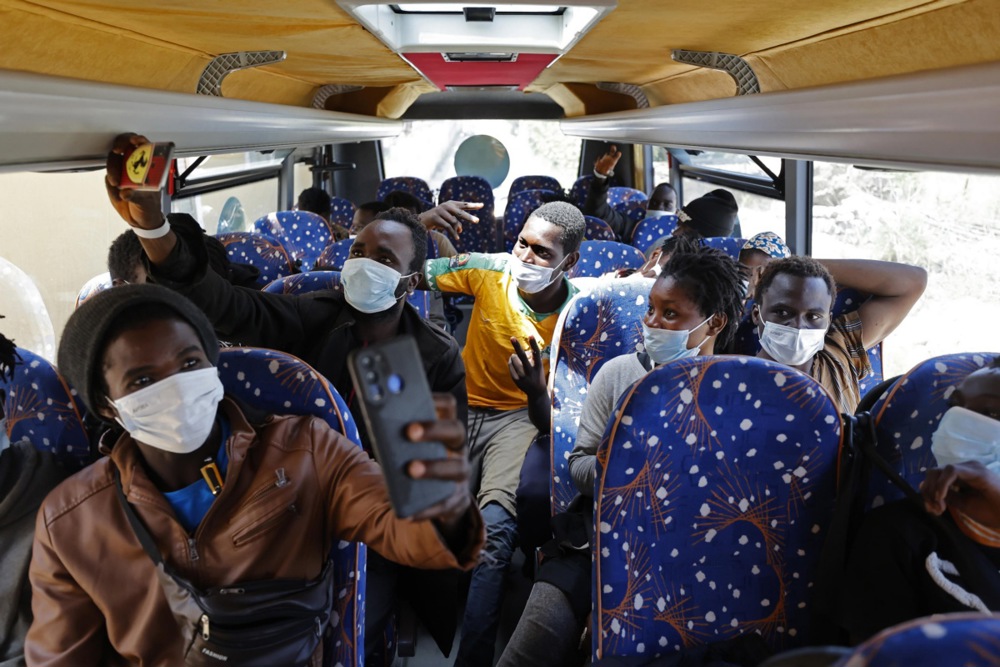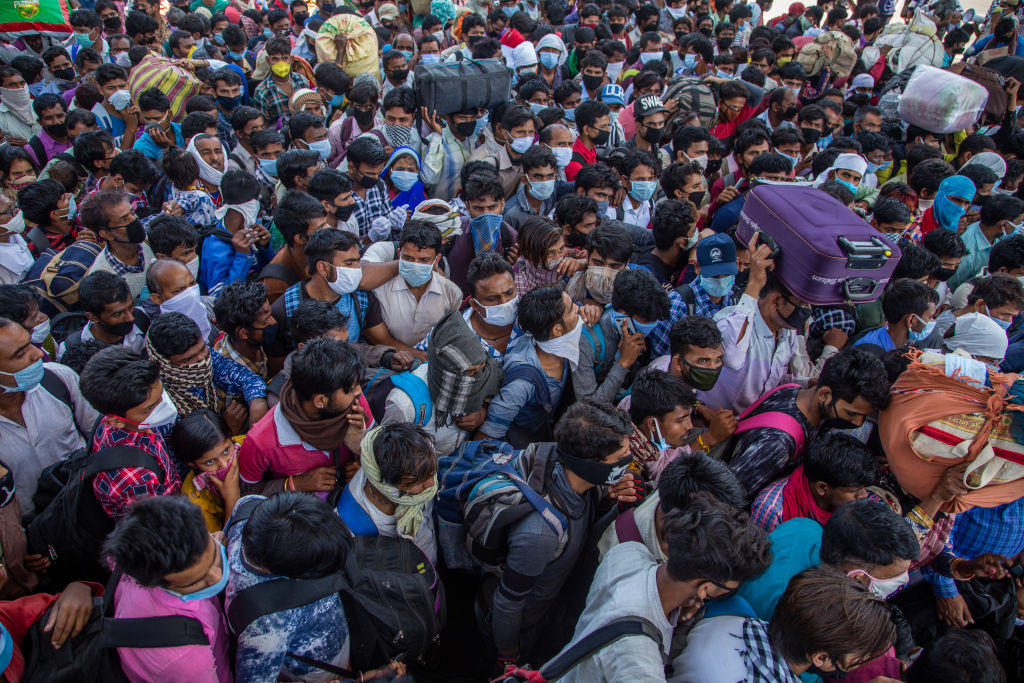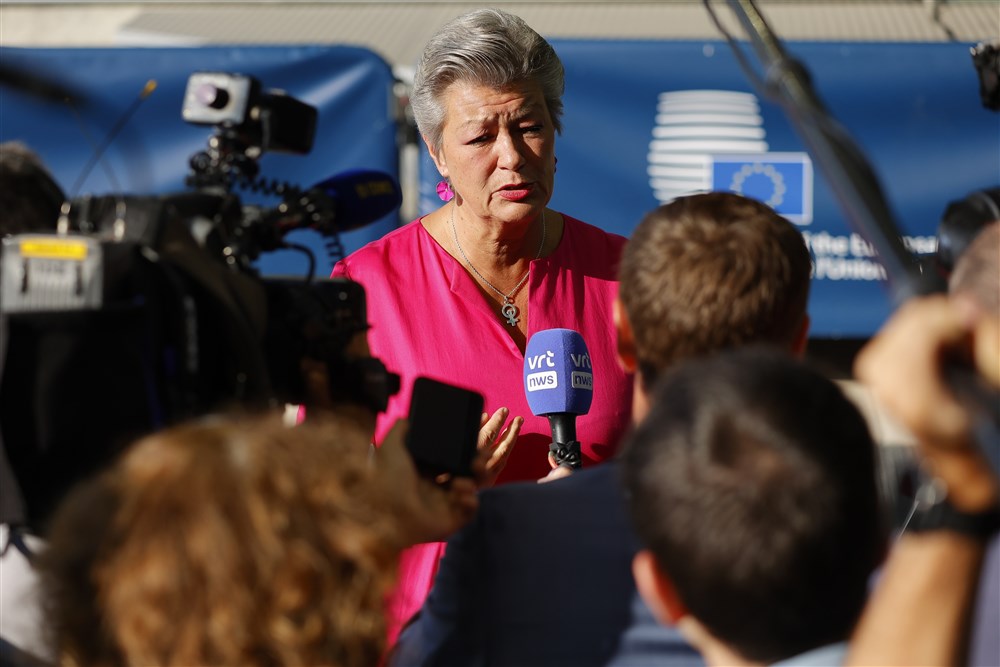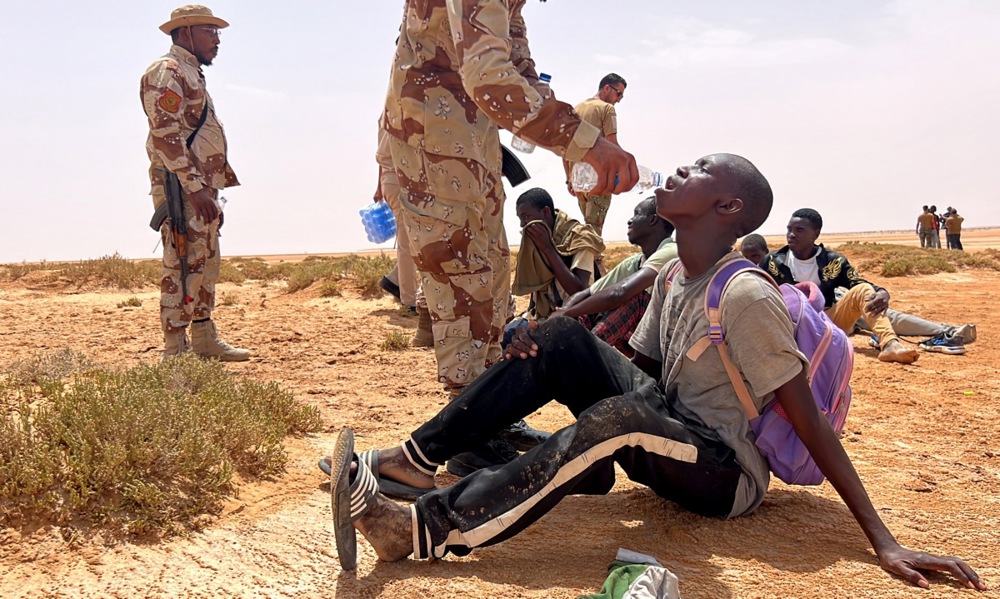President of the European Parliament Roberta Metsola is looking to isolate opponents to the migrant pact, she told the press on Tuesday. She said it is important to ensure opponents, expected to include Poland and Hungary, could not form a “blocking minority”.
Metsola said she was looking to help outmanoeuvre opponents in the Council of Ministers, to ensure they didn’t have sufficient backing to torpedo the package of laws.
Under the EU’s complicated qualified majority voting rules, a minority of EU Member States can technically veto legislation.
To increase pressure on national governments, the Parliament has put part of negotiations on hold, she said.
The aim however remained to secure approval before the end of the current Parliamentary term. The EP President said she would do anything she could to create consensus.
Speaking to the European Newsroom, a co-operation project between news agencies from all over Europe, Mestola said she remained “optimistic” that governments and MEPs could reach an agreement.
“I am optimistic because I would not be able to explain to voters how, after a five-year legislature, we failed to find a solution to one of the best legislative proposals we have ever had on the table,” Metsola said.
On September 20, the European Parliament halted negotiations with the Council of Ministers on Refugees on two key parts of the pact in protest at a lack of progress on the so-called “asylum pillar”. Metsola said the “pillar of migration security cannot be addressed alone without the asylum pillar”.
The European Parliament chief stressed the need to “not separate the internal and external dimensions of immigration” and to “be consistent in how we engage with neighbouring countries.
“Until we have found a solution that allows us to investigate asylum applications outside the EU territory, we will need to engage in a dialogue with those countries from which migrants have no other option but to embark on a boat,” Metsola said.
The negotiating impasse could end this week or next, she said, while noting that “not all countries will accept it, that is nothing new, but we need to find a majority”. Everything depended on “political” goodwill.
“I cannot justify the fact that in five years in office, we have not been able to find a solution,” she said of the Pact.
“In the past, we could have found majorities but consensus has been used as a reason not to do so.
“I say this with regret: we could have formed a majority in the past, but the excuse of preferring consensus was used.
“This is an area where decisions are made by a majority. Now we have to ensure there is no blocking minority in the Council, which is what concerns me in the case of crisis management.”
Metsola also commented on the use of navies in the Mediterranean. “If a naval mission in the Mediterranean can be carried out to ensure that fewer people lose their lives while simultaneously ensuring that borders are respected, then this is an aspect we could consider positively. It’s a decision of the governments but it is highly debated in this forum.”
Although the European election campaign is expected to be complex, Metsola said she was confident that the new Parliament formed after the vote will maintain “a pro-European and constructive centre majority”.
That would allow for her potential successor to be chosen “from that centre”. The same applied to the next President of the European Commission, she added: position for which no one has yet applied, though Metsola is rumoured to be interested herself.
When questioned if concerns over the recent EU-Tunisia migration agreement have had an influence on the negotiations, Metsola called for “consistency” in how different neighbouring countries are treated.
She admitted that until an agreement on where claims for asylum can be processed outside the EU is found, “there will have to be a dialogue with the countries where migrants see no other solution than getting on a boat”.





